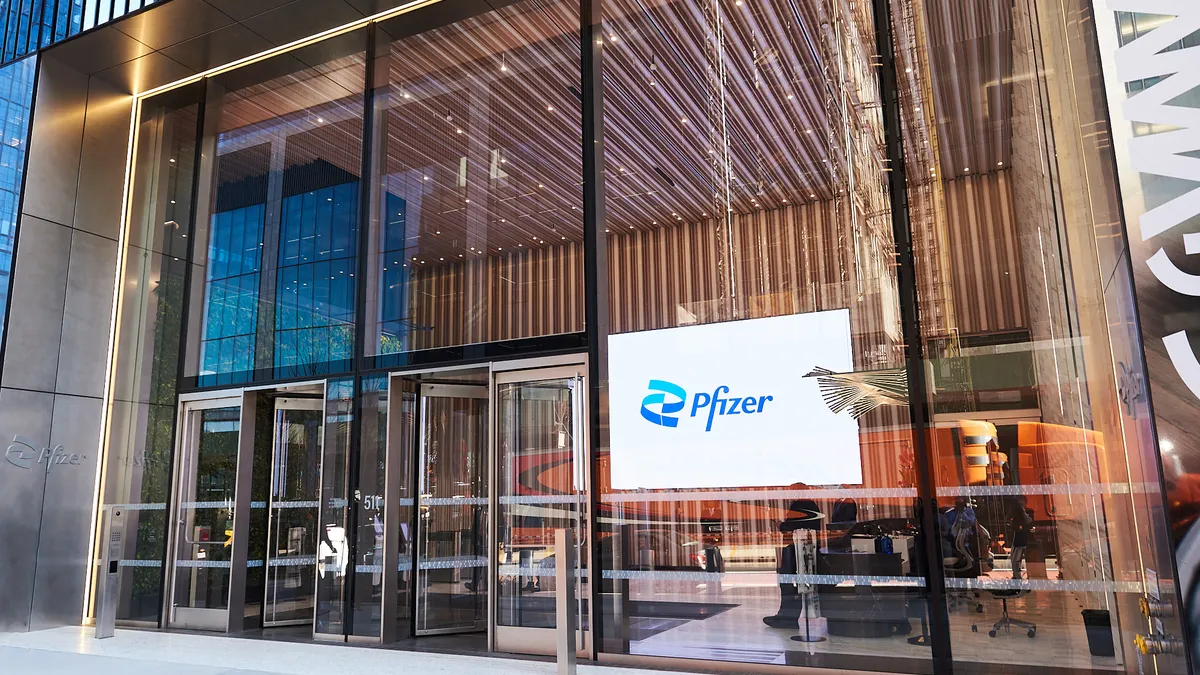Will direct-to-patient telehealth prescription platforms from drugmakers like Pfizer and Eli Lilly be a tool to make healthcare more convenient for patients or an illegal strategy to increase drug sales? A group of U.S. senators has sent letters to both companies looking for an answer.
The group, led by Senate Majority Whip Dick Durbin (D-IL), is skeptical of the telehealth platforms developed by the two companies, which they say could pressure doctors into prescribing company products and may violate the federal Anti-Kickback Statute. They requested additional details about the programs by Nov. 25.
A new tool
The programs in question are PfizerForAll, designed to connect patients with virtual healthcare providers who can sign off on prescriptions, and LillyDirect, which uses a similar format.
Eli Lilly launched LillyDirect to help patients with obesity, diabetes and migraine navigate a complex healthcare system, a Lilly spokesperson said in a written statement. Through third-party, in-person or telehealth prescribers, Lilly can send medications directly to patients’ homes.
Lilly denied there would be an opportunity for illegal influence.
“These providers are fully independent from Lilly, exercise autonomous clinical judgment in evaluating and making care decisions, are not incentivized to prescribe Lilly medicines, and do not provide any compensation to Lilly for referrals,” the spokesperson said.
Because any healthcare provider can use Lilly’s pharmacy options, patients can choose their own doctor. But senators have concerns about the site.
“This manufacturer-sponsored arrangement appears intended to steer patients toward particular medications and creates the potential for inappropriate prescribing that can increase spending for federal healthcare programs,” they wrote in a letter to Lilly CEO David Ricks.
Senators also raised red flags about Pfizer’s site, claiming it shepherds patients into choosing the company’s own treatments.
“After describing Pfizer’s medications and the benefit they can have for patients, Pfizer’s telehealth platform provides a link for patients to ‘talk to a doctor now’ and fill prescriptions via an online pharmacy,” said the letter sent to Pfizer CEO Albert Bourla. “This creates the impression that any patient interested in a particular medication can indeed receive it with just a few clicks.”
Pfizer officials did not respond to a request for comment from PharmaVoice.
A costly problem
The senate group said direct-to-patient drug advertising strategies drive up healthcare costs and have questionable value. Pharma companies spend around $6 billion annually advertising medications directly to patients to pump up demand, and the efforts pay off.
“A recent study found that more than two-thirds of drugs advertised on television were considered ‘low added value,’ despite accounting for 58% of Medicare’s overall spending on prescription drugs between 2016 [and] 2018,” the senators wrote to Bourla. They pointed to Pfizer’s Xeljanz, which cost Medicare $886 million in 2022, as an example of a drug that benefited from this advertising approach.
Lawmakers aren’t the only ones concerned about the issue. The Office of the Inspector General issued a fraud alert in 2022 warning of telehealth platforms employing providers to generate medication kickbacks that run afoul of Medicare and Medicaid regulations.
“The nature of the PfizerForAll platform appears to reflect many aspects of the HHS OIG warning for potential fraud,” the letter to Pfizer stated.
It remains to be seen whether Pfizer and Lilly can assuage these concerns. Lilly’s spokesperson said the company looks forward to explaining the program and its purpose to the senate group.












